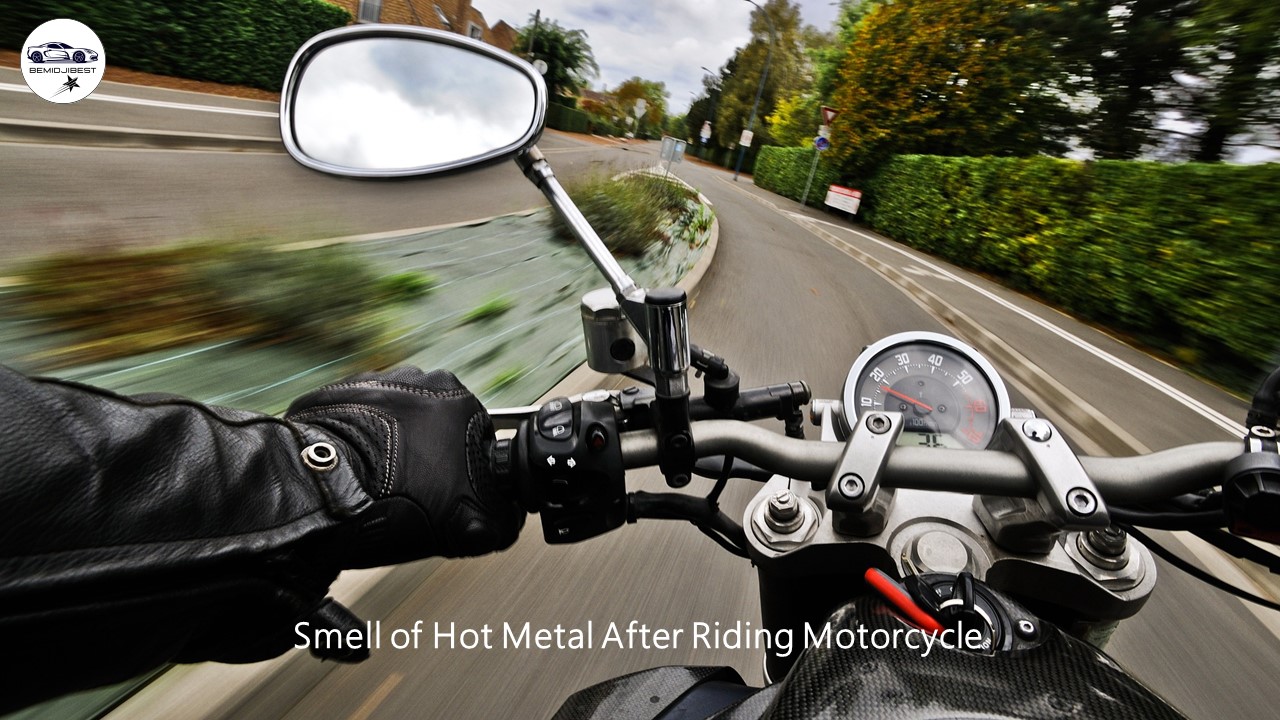
Motorcycle enthusiasts often experience a distinct smell of hot metal after an exhilarating ride. This phenomenon, while intriguing, can also be a signal of underlying mechanical issues that warrant attention. In this article, we delve into the causes, implications, and preventive measures associated with this unmistakable scent.
What Causes The Smell Of Hot Metal After Riding A Motorcycle?
Several factors contribute to the hot metal smell that many riders notice after dismounting their motorcycles. Understanding these causes is essential for ensuring your bike’s longevity and performance.
Heated Engine Components
Motorcycle engines operate at high temperatures, especially during prolonged or aggressive riding sessions. The engine’s metal components expand and emit a characteristic odor when heated. This smell can intensify if the engine is running hotter than usual due to:
- Insufficient cooling system efficiency.
- Low engine oil levels or degraded oil quality.
- Overloading or excessive strain on the engine.
Exhaust System Heat
The exhaust system, including headers and mufflers, reaches extreme temperatures during operation. Residues such as road grime, oil, or debris can burn off on these surfaces, producing a metallic smell. Common culprits include:
- Leaks in the exhaust manifold.
- Burned-off lubricants from recent repairs or maintenance.
- Contact between the exhaust system and foreign materials like plastic or rubber.
Brake Overuse Or Malfunction
Aggressive braking or malfunctioning brake components can cause excessive friction, leading to the smell of overheated metal. This issue arises when:
- Brake pads are worn or improperly installed.
- The brake calipers are sticking.
- Excessive downhill braking heats up the rotors.
Clutch Wear And Tear
Riding with a partially engaged clutch or frequent clutch use in heavy traffic can lead to overheating. Over time, this wear emits a strong odor reminiscent of burnt metal or rubber.
Electrical Issues
Short circuits or overheating electrical components may produce a similar odor. Faulty wiring, overloaded circuits, or malfunctioning connectors are typical sources.
External Factors
External elements like road debris, tar, or even rainwater vaporizing on hot surfaces can contribute to the smell. These factors are usually benign but should be monitored to ensure they don’t mask more serious problems.
Is The Smell Of Hot Metal A Cause For Concern?
While the smell of hot metal is not always alarming, it can indicate potential mechanical problems. Ignoring this issue may lead to:
- Reduced fuel efficiency.
- Premature wear of engine or brake components.
- Safety hazards during rides.
If the smell persists or is accompanied by unusual noises, vibrations, or performance drops, immediate inspection is advisable.
How To Diagnose The Source Of The Smell
Visual Inspection
Start with a thorough visual check of the bike, focusing on areas prone to overheating:
- Look for discoloration, burns, or leaks near the engine and exhaust.
- Inspect brake pads, rotors, and calipers for signs of wear.
- Examine the clutch assembly for damage.
Check The Fluids
- Assess engine oil levels and quality. Replace if necessary.
- Inspect coolant levels and ensure there are no leaks.
Listen And Feel
- Ride the motorcycle slowly to identify unusual sounds or vibrations.
- Check for resistance in brake levers or pedals.
Use Diagnostic Tools
Professional diagnostic tools can help pinpoint electrical faults or engine inefficiencies. Visiting a certified mechanic for advanced diagnostics is recommended if the issue persists.
Preventive Measures To Avoid The Smell Of Hot Metal
Regular Maintenance
Routine maintenance can prevent overheating and related odors. Key actions include:
- Changing the engine oil and filter at recommended intervals.
- Flushing and refilling the coolant system as needed.
- Regularly inspecting and replacing brake pads and rotors.
Proper Riding Habits
- Avoid aggressive acceleration and braking.
- Shift gears smoothly to reduce clutch wear.
- Allow the engine to cool down after long rides.
Quality Repairs And Upgrades
- Use high-quality parts and fluids to minimize wear.
- Ensure repairs are performed by qualified professionals.
Storage And Cleaning
- Keep the motorcycle clean and free of debris that could burn on hot surfaces.
- Store the bike in a dry, ventilated area to prevent rust and residue buildup.
When To Seek Professional Help
If preventive measures and basic diagnostics don’t resolve the issue, it’s time to consult a professional. Look for these signs:
- Persistent or worsening smell despite maintenance.
- Visible damage or leaks.
- Significant changes in bike performance.
Conclusion
The smell of hot metal after riding motorcycle is often a natural result of high-performance operation but can also signal mechanical issues that require attention. By understanding the causes, performing regular maintenance, and adopting proper riding habits, you can enjoy a safer and more enjoyable riding experience.
FAQs
- What does the smell of hot metal indicate on a motorcycle?
It typically signals heat interaction with metal parts, often due to friction or residue burning off.
- Is the smell after riding a motorcycle harmful?
Usually not, but persistent strong odors might indicate issues that need attention.
- Can the smell of hot metal damage my motorcycle?
Prolonged overheating or neglect of mechanical issues could lead to damage.
- How can I prevent my motorcycle from smelling like hot metal?
Regular maintenance, cleaning, and ensuring proper ventilation can help.
- Should I consult a mechanic if I smell hot metal frequently?
Yes, frequent or unusual smells should be inspected to rule out potential problems.
See Also:
